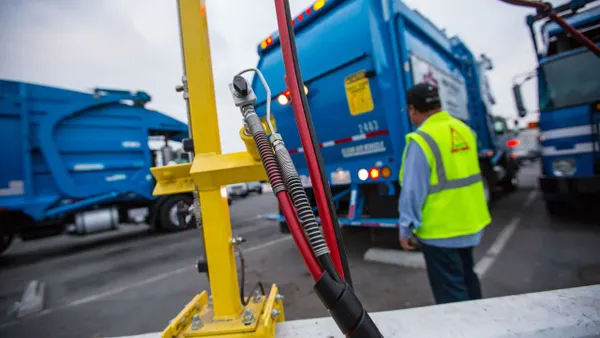Dive Brief:
- Metro, the regional government of the Portland, OR metropolitan area, is negotiating with Waste Management to develop a plan to process food waste near Portland's existing wastewater treatment plant, according to the Portland Tribune.
- Metro has set a late-April target for issuing a notice of intent to award the contract to Waste Management and is not divulging details of the negotiations until then. If Waste Management and Metro fail to come to an agreement, Metro is expected to approach SORT Bioenergy, which also applied for the contract.
- Local lawmakers are crafting a rule that would require businesses and institutions above a certain size to divert food scraps for collection to be processed through anaerobic digestion. A final proposed law likely won't be submitted for a council vote until after the contract is awarded. Metro is likely to award the food scrap contract through an administrative process, rather than a legislative one.
Dive Insight:
Metro is making a number of changes to how it handles solid waste — and the discussion around organic waste has been ongoing since at least 2016. If the currently-proposed organics rule goes into effect, local service providers could be required to offer organics collection if they aren't doing so already.
In three phases, beginning in March 2020, producers would have to start recycling food scraps. The first phase would only apply to companies that produce 1,000 lbs. or more of food waste per week. The second phase would apply to sites producing more than 500 lbs. per week. The third and final phase would apply to schools and those producing 250 lbs. of food waste or more.
According to its latest sustainability report, Waste Management currently counts 43 organics processing facilities among its assets. Until further details are released it's unclear which specific technology would be used in Portland. Some of Waste Management's more recent organics projects in Boston and Los Angeles have involved pre-processing material to be digested off-site, rather than building its own facility.









